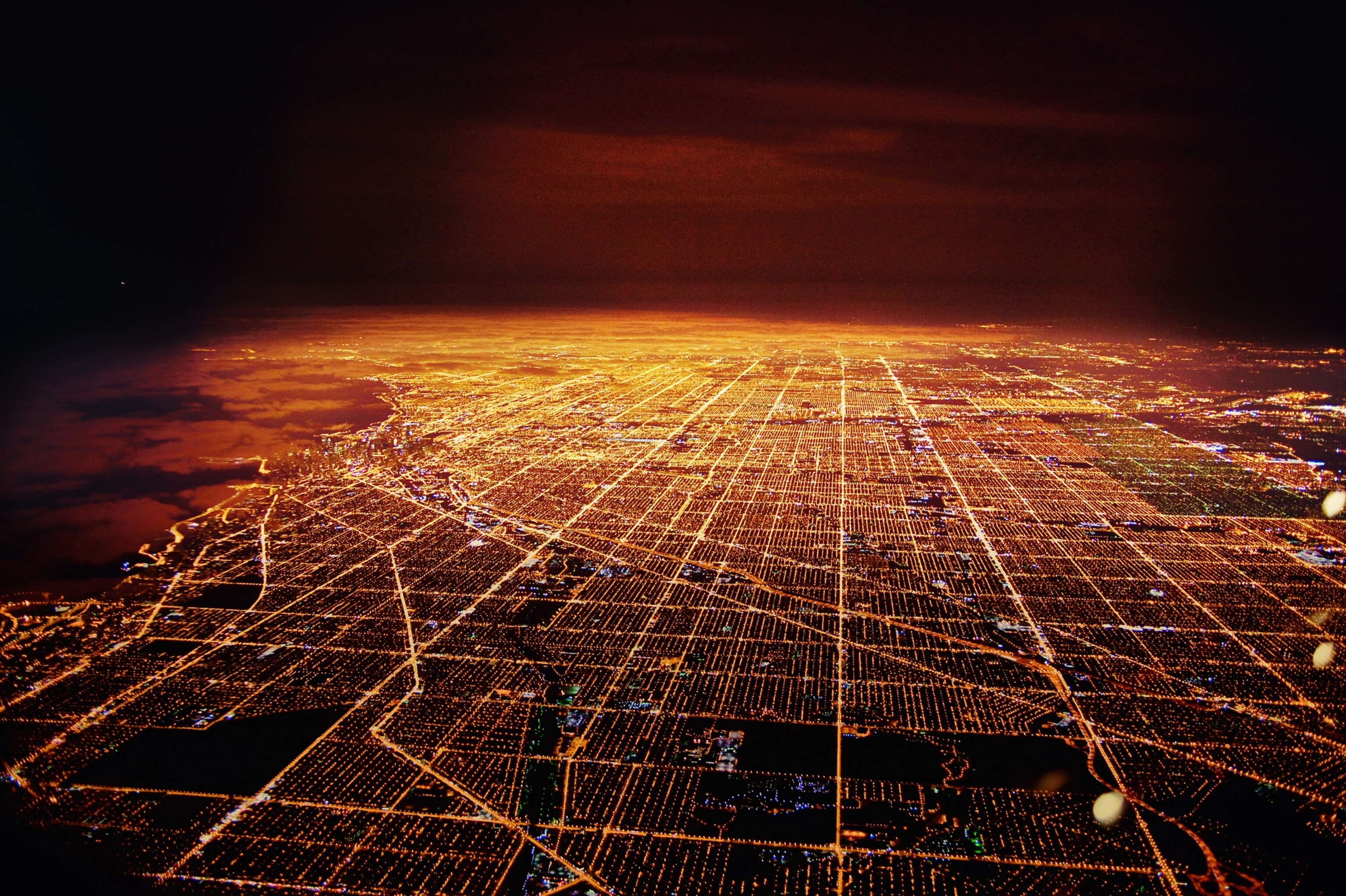
Opinion: Bright Nights, Big Problems
Why we should turn off the lights and appreciate the dark.
We live immersed in artificial light.
Astronomers rate the darkness of our skies on a scale (the Bortle Scale) of 9 (brightest) to 1 (darkest). Most of us spend our lives in the radiance of levels 5 through 8, only rarely venturing into areas ranked 3 or darker. Because of the rapid growth of light pollution over recent decades, most Americans under 40 have never known real darkness. All over the globe our nights are growing brighter, and almost nowhere are they growing darker.
We are just beginning to learn the true cost of all this light. Studies increasingly link our overuse of light at night with health concerns such as sleep disorders, diabetes, obesity, and cancer. Other studies report the damaging ecological consequences, the tremendous waste of energy, and even the decrease in safety and security. But the steady loss of darkness from our lives is not easily quantified, for like the similarly endangered qualities of solitude and quiet, the true value of darkness is often intangible.
Take a brilliantly starry sky. Since the beginning of time, a sky plush with stars was part of the common human experience. Everywhere on Earth, on most nights, our ancestors came face to face with the universe. This experience influenced their religious beliefs, mythologies, art—their very understanding of their place in creation. Today, because of light pollution, two-thirds of those in the United States and western Europe live where they cannot see the Milky Way, and 99 percent of us live under skies polluted by light.
For the tens of millions who live under a night sky showing 25 stars or fewer, it is nearly impossible to imagine a natural sky of some 2,500 individual stars backed by great swathes of uncountable billions. Our night sky continues to shape us, but now it is the absence of the universe around us that influences our religious beliefs, our myths, our impulse to create. We are being shaped by a diminished experience of darkness, and most of us don't even know what we are missing.
Imagine the world without van Gogh's "Starry Night," Chopin's "Nocturnes," Beethoven's "Moonlight Sonata." Imagine the world without the astral myths of the Greeks and every other ancient and primitive civilization, without countless biblical stories that rely on darkness, without St. John of the Cross's book Dark Night of the Soul. Imagine the world without the gathered inspiration of countless generations before us looking into the night sky and being filled with wonder, with questions, with desire to know and understand. Most of us have lost this opportunity to be awed at the sight, to feel similarly inspired—to create, to change our lives, to gain a greater understanding of our God.
Our Milky Way galaxy is home to several hundred billion stars, and the universe home to several hundred billion other galaxies. Because of light pollution we no longer have a nightly reminder of how small we are, nor of how large. A sky wiped clear of stars tempts us to inflate our importance, to imagine humanity as the center of all things. Face to face with the endless immensity of the universe, we have the chance to know humility. But we might also realize the true largeness of our living on this beautiful Earth, and realize that we have an enormous responsibility to care, that there is no other place to go, that home is here.
Night's natural darkness can teach us about metaphorical darkness as well. Ancient cultures included in their hero myths an experience of the dark—the dark wood, the underworld—for to become fully human was to acknowledge darkness as part of life's journey. It certainly is today—we often live in the darkness of not knowing, unable to see the future, with no crystal ball. Genuine faith isn't about finding clarity, but rather living with doubt. Those who profess to have no doubt, to have all the answers, to believe theirs is the only truth—they ignore the reality of metaphorical darkness. All life on Earth evolved in both bright days and dark nights, and we need both for optimal health. This is as true for our spirit as for our body.
And what of beauty? "Everyone needs beauty as well as bread," wrote John Muir, and darkness is rich with this intangible resource. Lighting designers in Paris understand that without darkness, there is no "city of light," and work constantly to create their city's atmospheric beauty by subtly mixing artificial light with darkness. And with night's moonlit geographies, its scents of sage-infused desert rain and autumn fires, its pulsing cricket symphonies punctuated by a loon's solo call on a northern lake, natural darkness offers endless beauties of its own.
Yet we live immersed in artificial light. Much of this lighting is wholly unnecessary, born of habit and lack of awareness. So let us become aware: Simply by shielding our existing lights we could significantly reduce their negative effects on our body, our mind, our soul. Artificial light at night is a miracle, a wonder, a quality that enriches our lives. But the same has always been true of darkness, and can be again.
Paul Bogard is the author of The End of Night: Searching for Natural Darkness in an Age of Artificial Light, which was published this month.